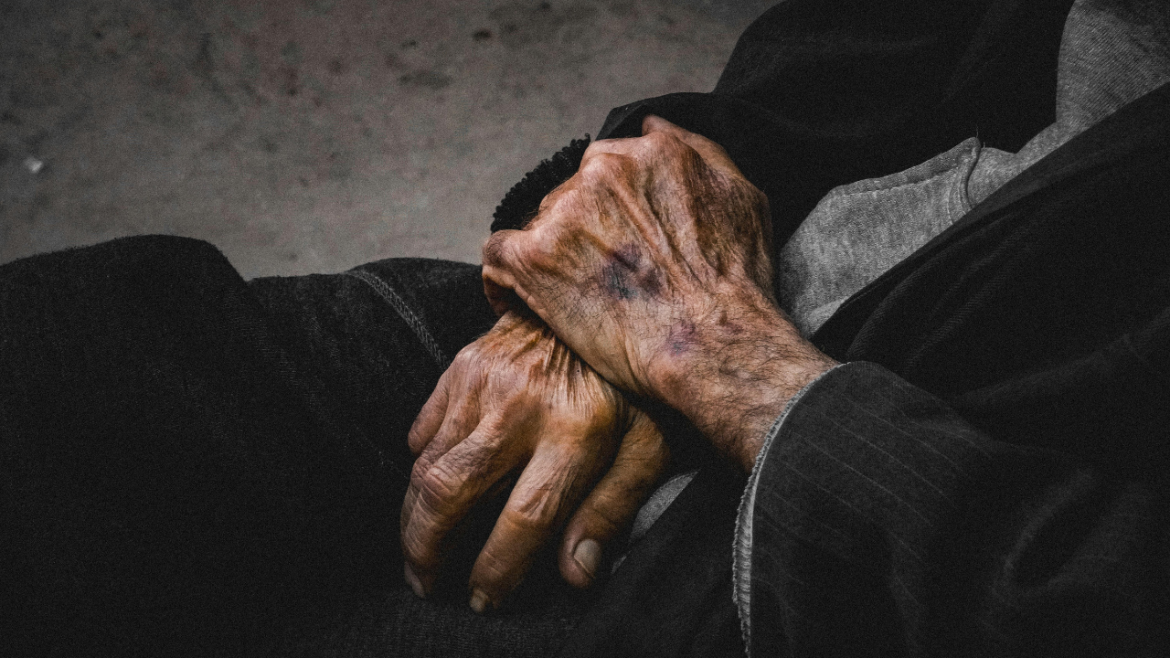Did you know that Leading Edge Senior Care has a Dementia Support Group? We meet monthly in Mesa. For more details <click here>
What Is The Finger Pinch Test For Dehydration?
Dehydration is a common condition that can affect anyone, but it is particularly dangerous for seniors, children, and those with chronic illnesses. When the body loses more fluids than it takes in, it struggles to perform essential functions. Recognizing dehydration early is crucial to preventing complications, and one simple method to assess hydration levels is the finger pinch test.
Also known as the skin turgor test, this quick assessment evaluates how well the skin retains its elasticity, which is directly affected by hydration. While not a definitive medical diagnosis, it can be a useful tool for identifying potential dehydration before more severe symptoms appear.
How the Finger Pinch Test Works
The skin contains a significant amount of water, which helps maintain its elasticity. When a person is properly hydrated, their skin quickly returns to its normal position after being pinched. Dehydration, however, reduces skin elasticity, causing it to return more slowly.
To perform the test, gently pinch the skin on the back of your hand or forearm and hold it for a second before releasing. If the skin bounces back immediately, hydration levels are likely sufficient. If it takes a few seconds to return to normal, it could indicate dehydration. This method is particularly useful for older adults, as they may not always feel thirst even when their bodies need water.
Why Hydration Is Essential
Water plays a critical role in maintaining body temperature, aiding digestion, and ensuring proper circulation. Without enough fluids, the body cannot regulate itself effectively, leading to issues such as dizziness, fatigue, confusion, and dry skin. For seniors, dehydration can increase the risk of urinary tract infections, kidney problems, and cognitive decline.
Many factors contribute to dehydration, including high temperatures, physical exertion, illness, and medications that increase urination. Diuretics, caffeine, and alcohol can further deplete fluid levels. People with diabetes or kidney disease must be especially mindful of their hydration status, as they are at greater risk for fluid imbalances.
Recognizing the Signs of Dehydration
Dehydration does not always present obvious symptoms in its early stages, making awareness crucial. Dry mouth, dark urine, headaches, and muscle cramps can signal mild dehydration. As dehydration worsens, symptoms may include dizziness, rapid heart rate, confusion, and extreme fatigue. If left untreated, severe dehydration can lead to life-threatening complications such as kidney failure, heatstroke, or shock.
Older adults often experience decreased thirst signals, making it even more important to monitor fluid intake and watch for subtle signs of dehydration. If an individual shows signs of extreme dehydration, such as an inability to produce urine or fainting, immediate medical attention is necessary.
Preventing Dehydration
The best way to prevent dehydration is to make hydration a daily habit. Drinking water regularly, even when not feeling thirsty, helps maintain proper fluid levels. Eating water-rich foods, such as fruits and vegetables, can also contribute to hydration. For those who struggle to drink enough water, flavored or electrolyte-infused beverages may provide an alternative.
In hot weather or during illness, increasing fluid intake becomes even more critical. Adjusting hydration based on physical activity, climate, and medical conditions can help prevent dehydration before it becomes a serious issue.
When to Seek Medical Help
While mild dehydration can be resolved by increasing fluid intake, severe cases require urgent medical attention. If dehydration leads to confusion, rapid heartbeat, or an inability to keep fluids down, professional treatment is necessary. In some instances, intravenous fluids may be required to restore hydration levels quickly.
Seniors, in particular, should have regular check-ins with their healthcare providers to ensure they are staying adequately hydrated. A proactive approach to hydration can prevent complications and promote better overall health.
Conclusion
The finger pinch test is a simple yet effective way to check for dehydration, offering a quick method to assess hydration status. While it should not replace professional medical advice, it can help individuals recognize when they need more fluids. Staying hydrated is vital for overall health, particularly for seniors and those with underlying conditions.
By making hydration a priority and being aware of early dehydration signs, individuals can protect their health, prevent complications, and maintain better energy levels. Simple habits, like drinking more water and monitoring skin elasticity, can make a significant difference in maintaining hydration and overall well-being.

